My Tips for Starting an Edible Garden
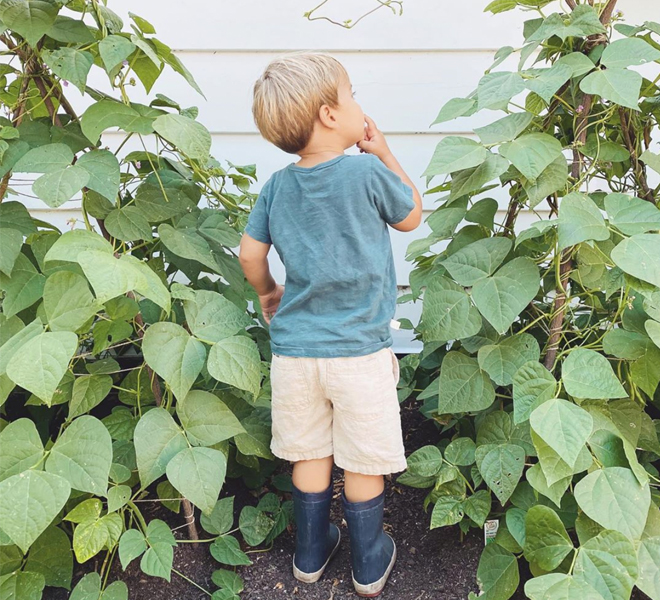
This summer I’ve been growing a lot of new plants in my garden. It began with me trying to come up with activities for Liam in the beginning of quarantining. We cleared out a spot on the side of our house that had been taken over by weeds and made a raised bed from some bricks we found. It was scrappy and I had no idea if anything would actually grow. And then it did. Before we knew it, we had the peas and broccoli that we had planted on our dinner plates. So we started searching for other spots in our yard to plant more vegetables and our garden has continued to expand ever since. And just like that, something I had done to occupy my 2-year-old became something I really enjoyed.
From roses to peas and green beans, I’ve really loved being able to grow my own produce and flowers, and build out a little garden for our family. Gardening has not only kept me busy and focused, but it’s been a good way to wind down after a long day. I’ve had so much fun with this project that I thought I’d share a few tips to help start your own edible garden. You can use these tips whether you have a yard, a balcony, or even a windowsill that gets a lot of light. With a little practice, research, and effort, you can have a kitchen garden of your own too, so keep reading to see how you can start one…
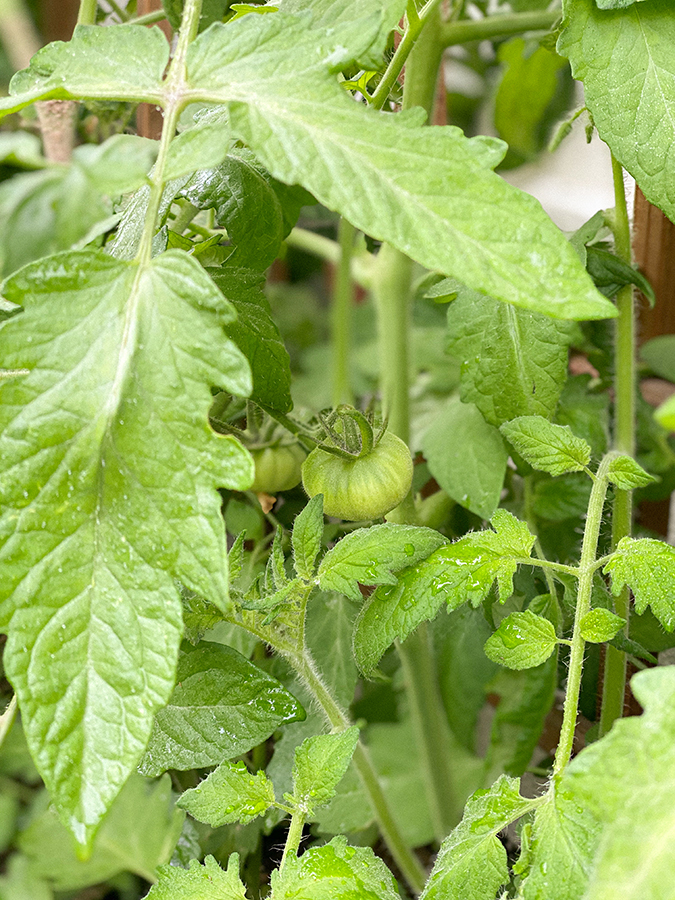
Decide What to Plant
The first things you should consider when starting your own garden are what will grow in your region and what you actually eat. This will determine every aspect of your home gardening, like how much sun your plants will need, your soil type, how often you water your plants, and how much space you will need. Squash grew beautifully in my garden… and I hate it. Luckily, Charlie liked it so he ate a lot of pureed squash.
Create a Calendar
You can make your own calendar or buy one. It’s the best way to remember when to plant, water, fertilize, and care for each plant. You can also keep track of a plant’s progress or anything important you may notice. That way, if something goes wrong, you can go back and check your notes.
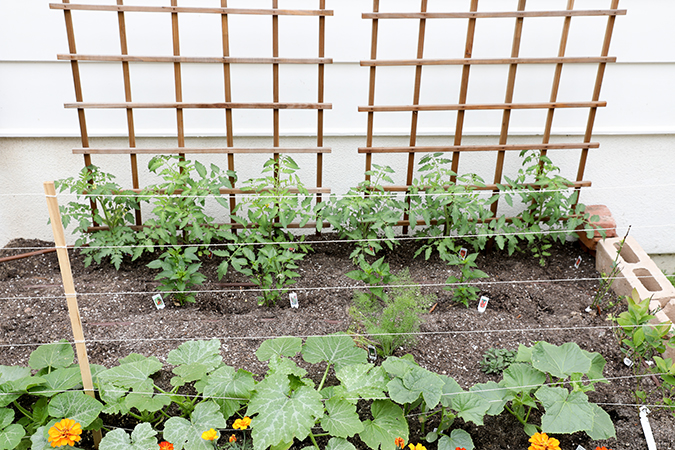
Find the Right Area
Most gardens require a lot of sun so find a space that gets a lot of sunshine most of the day. For me, this meant removing some existing landscaping and clearing up some space. However, if you don’t have a lot of space, try your best to find an area in your home that has the most light.
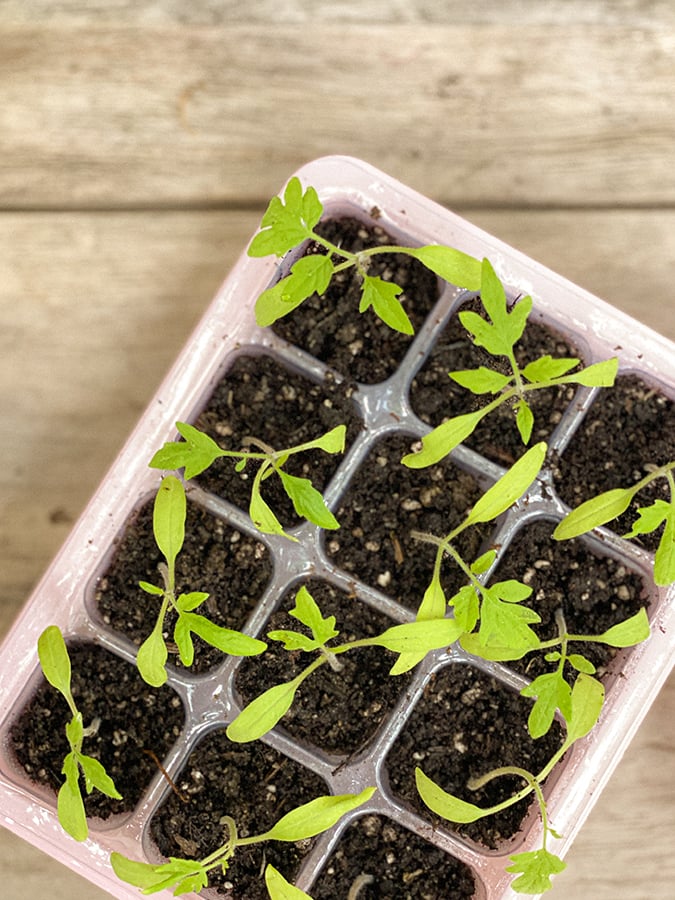
Check the Soil
You can test the soil you have (they sell simple tests on Amazon like this one), or you can build raised beds and bring in fresh soil.
Plan Your Plot
You will need to map out where everything goes. You may need to stake tomatoes or build trellises for peas. Each plant will need something different, so do your research.
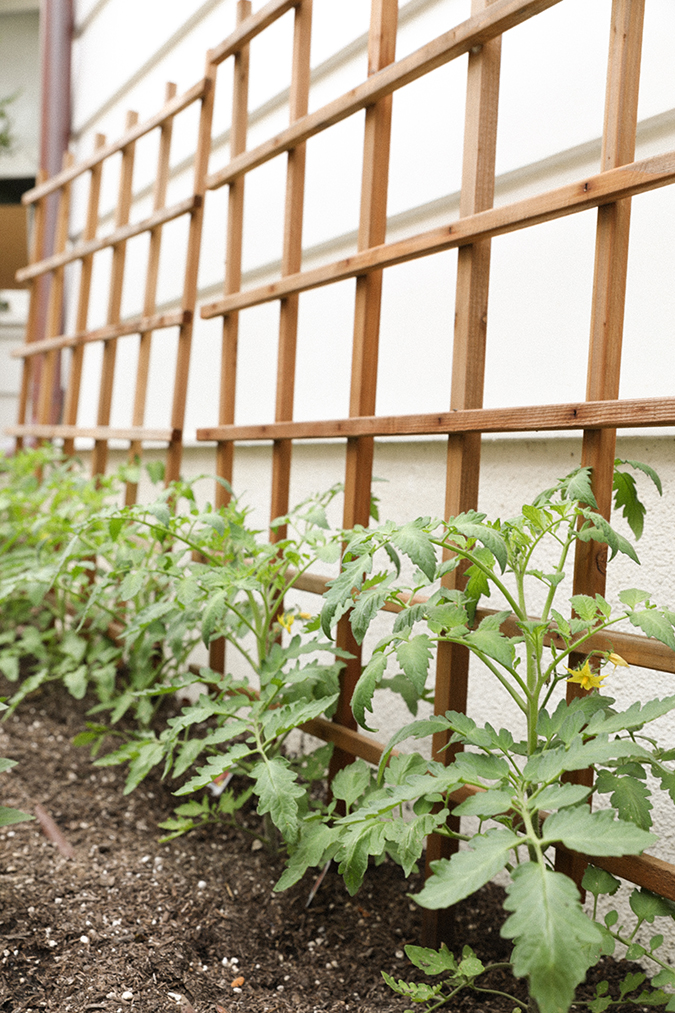
Sow Your Seeds or Plant Your Plants
You can either buy plants from the gardening center or you can plant your own seeds at home. You can even do a little of both. Planting seeds obviously takes more time, but it can be more cost effective. I’m getting ready to plant 12 tomato plants that I grew from the seeds of a Roma tomato awhile back, and I am also growing potatoes that I planted myself {however, If we are being honest, I forgot about them and they sprouted leaves, so I popped them in the ground.}
Make It a Family Activity
Yesterday, Liam refused to eat the green beans on his dinner plate, but this morning, he ate over a dozen off the vine in our garden. Watching things grow is exciting no matter what age you are, and if it encourages healthy eating then I am all for it.
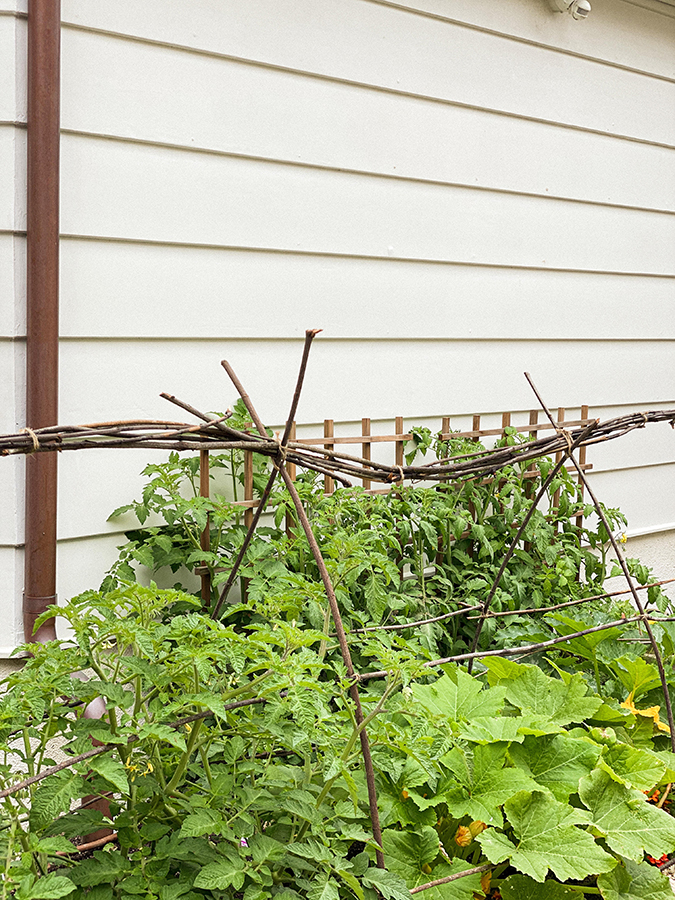
It’s OK if Things Go Wrong
Don’t get frustrated if things go wrong. There are countless factors when it comes to gardening and I have had a lot of things go wrong. I overwatered my tomatoes and grew them much too close together, so the plants were overgrown, and the fruit was mushy. I made the green bean trellises much too short and now, it’s a bit of a mess. I am still not sure what I did wrong with my zucchini that made them all rot before ripening, but I am planting them again in a different spot. The point is, not everything will grow properly so keeping notes and trying different things is key. Don’t give up!
There you have it. I hope these tips can help you create your very own kitchen garden.
What plants do you want to try growing at home?
Let me know in the comments below.
XO Lauren
Photos: Lauren Conrad
Affiliate links may have been used in this post.
